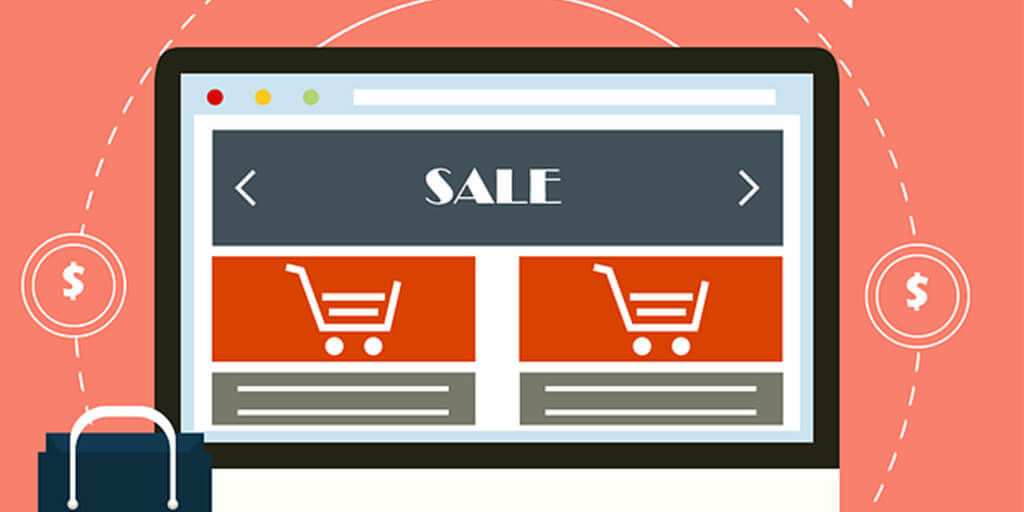Best Ecommerce Solutions for 2024
Find the ecommerce software to power your small business website. Includes information on pricing, comparisons between leading solutions, and FAQs.
Updated on December 21st, 2023
The SMB Guide is reader-supported. When you buy through links on our site, we may earn an affiliate commission. Learn more
Ecommerce solutions provide small businesses with easy-to-use ecommerce software that allows them to add and remove products, manage inventory, calculate taxes, take payment, and fulfill orders online.
Free Ecommerce Solutions
Discover the best free ecommerce solutions for your business. Includes information and frequently asked questions about ecommerce platforms.
Dec 12, 2023
Why We Chose BigCommerce, Shopify, and Adobe Commerce:
BigCommerce is cloud-based and tailored to small-medium sized businesses. This makes the software more affordable and accessible remotely.
The software offers great templates and custom layouts. Customer service is reportedly excellent, and the software integrates well with other apps.
Shopify is next on our list as it is a reliable, easy-to-use, and mobile-friendly multi-channel ecommerce platform with a great feature profile, including customizable themes, multiple payment options, and a range of marketing, order fulfillment, and store management tools.
Adobe Commerce is third on our list and is a highly customizable and feature-rich ecommerce solution ideal for fast-growing small businesses. The platform allows for seamless third-party integrations and lets you create personalized customer experiences.
Things to Consider When Evaluating Ecommerce Solutions:
- Check the system requirements for potential software to ensure that your device can run it. Having an outdated device may cause more robust software to lag or run inefficiently.
- Consider choosing software with scalable features or adjustable packages so that if your needs change, you can upgrade your services without losing data.
- While it may seem best to choose a robust, complex software solution, some companies tailor specifically to smaller businesses. This will save you money and ensure that you won't pay for features you don't use.
Best Ecommerce Solutions:
Rank | Name | Offer | Review | Learn More |
|---|---|---|---|---|
1. | From $39.00 /mo. | Provides templates as well as custom layouts. Offers great customer service. | ||
2. | From $19.00 /mo. | There are multiple themes and payment options. Easy to use and set up. | ||
3. | Contact for quote. | Highly customizable with scalable features. | ||
4. | From $39.00 /mo. | Affordable and easy to use, but no online storage is available. | ||
5. | From $199.00 /mo. | Great integration capabilities, but navigation has a steep learning curve. Support is available 24/7. | ||
6. | From $35.00 /mo. | Affordable and easy to use, but features can be limited. | ||
7. | Free and paid options. | Good integration capabilities, payment analytics, and 24/5 email and phone support. | ||
8. | From $23.00 /mo. | User-friendly but not suitable for high-volume retailers. | ||
9. | Free and paid options. | Best-suited to small businesses, but full ecommerce reporting is missing. | ||
10. | Free. | User-friendly but doesn't offer professional SEO settings and SEO optimization. | ||
11. | From $600.00 /mo. | Easy to use with an excellent plugin system. However, a license is required for multi-store configurations. | ||
12. | Free and paid options. | Offers excellent customer support but customization options are lacking. |
Comparisons Between Leading Products:
BigCommerce, Shopify, and Adobe Commerce are our highest-ranking ecommerce solutions. We compared packages across companies to help businesses select the most suitable offer based on their unique needs.
Starter Shopify:
Shopify's entry-level product costs $5.00 per month. It allows users to sell products on Facebook, and on websites such as WordPress and Squarespace using "Buy Buttons." Users can also create invoices and accept payments, both in person and online.
BigCommerce and Adobe Commerce do not offer comparable packages.
BigCommerce Standard vs. Basic Shopify:
BigCommerce's entry-level plan is quote-based, while Shopify's comparable package costs $25.00. However, Shopify also offers approximately 10% off annual packages, 20% off biennial packages, and 25% off triennial packages when paid upfront.
At this tier, BigCommerce and Shopify offer a number of similar features. These include 24/7 support, free SSL, unlimited bandwidth, the ability to list an infinite number of products, and the option to sell on both online marketplaces and social media. Buyers are also able to leave product reviews.
However, there are important distinctions between the plans. BigCommerce waives all transaction fees when clients use leading payment gateways, while its competitor only allows users to use Shopify Payments for free. Those who choose to use alternatives must pay 2% per transaction. Worth noting, however, is that Shopify offers a discounted rate on in-person credit card transactions, while BigCommerce does not.
Basic Shopify has another advantage over BigCommerce Standard: it reminds prospective buyers about their abandoned carts. However, BigCommerce offers real-time shipping quotes, professional reporting tools, and the option to generate gift cards, which Shopify does not. BigCommerce also includes capacity for an unlimited number of staff accounts, while Shopify limits users to two such accounts.
BigCommerce Standard vs. Basic Shopify Comparison:
Feature | BigCommerce Standard | Basic Shopify |
|---|---|---|
Price | $39.00 /mo. | $25.00 /mo. or $19.00 /mo. billed annually. |
Payment Gateway Transaction Fee | 0% | 0% if using Shopify Payments or 2% if using an external payment gateway. |
Credit Card Rates: Online | 2.9% +$0.30 /transaction. | 2.9% +$0.30 /transaction. |
Credit Card Rates: In Person | N/A | 2.7% |
Staff Accounts | Unlimited | 2 |
Gift Cards | ✓ | x |
Abandoned Cart Recovery | x | ✓ |
Real-Time Shipping Quotes | ✓ | x |
Professional Reporting Tools | ✓ | x |
24/7 Support | ✓ | ✓ |
BigCommerce Plus vs. Shopify:
BigCommerce Plus costs $105.00 per month, while Shopify costs $65.00 per month. Both providers offer roughly 10% off annual plans, while Shopify also offers roughly 20% off biennial plans and 25% off triennial plans. Common features include those described above, plus abandoned card reminders, gift cards, and professional reporting capabilities.
In terms of transaction fees, BigCommerce allows clients to use leading payment gateways for free, while Shopify users only have complimentary access to Shopify Payments. At this tier, the company charges a 1% fee when its clients utilize third-party payment gateways.
Moreover, BigCommerce's clients are subject to a fee of 2.5% +$0.30 per online credit card transaction, while Shopify charges 2.6% +$0.30 per equivalent payment. Worth noting, however, is that the company offers a discounted rate of 2.5% per in-person credit card transaction.
There are a number of noteworthy distinctions across the feature sets. For example, BigCommerce allows clients to create an unlimited number of staff accounts, whereas Shopify limits users to 5 such accounts. In addition, BigCommerce offers real-time shipping quotes, while Shopify does not provide these at all.
Also worth noting is that BigCommerce Plus includes a "persistent cart" feature. This allows prospective buyers to retain the contents of their shopping carts when switching devices. Shopify does not offer this as a built-in feature. Instead, users must download an add-on module or modify the software.
BigCommerce Plus vs. Shopify Comparison:
Feature | BigCommerce Plus | Shopify |
|---|---|---|
Price | $105.00 /mo. | $65.00 /mo. or $49.00 /mo. billed annually. |
Payment Gateway Transaction Fee | 0% | 0% if using Shopify Payments or 1% if using an external payment gateway. |
Credit Card Rates: Online | 2.5% +$0.30 /transaction. | 2.6% +$0.30 /transaction. |
Credit Card Rates: In-Person | N/A | 2.5% /transaction. |
Staff Accounts | Unlimited | 5 |
Persistent Cart | ✓ | Optional add-on |
Real-Time Shipping Quotes | ✓ | x |
24/7 Support | ✓ | ✓ |
BigCommerce Pro vs. Advanced Shopify:
Both providers offer similarly priced month-to-month and annual plans. However, Shopify offers about 20% off their biennial plans and 25% off their triennial plans, too. Once more, BigCommerce does not charge for the use of third-party payment gateways, while Shopify charges users 0.5%.
At this tier, BigCommerce offers more favorable credit card processing fees: these stand at 2.2% +$0.30 per transaction, whereas Shopify charges 2.4% +$0.30 per transaction. Worth noting, however, is that Shopify charges a discounted, flat fee of 2.4% per transaction, which BigCommerce does not.
While both providers offer a multitude of similar features, there are some notable distinctions. For example, BigCommerce offers capacity for an unlimited number of staff accounts, whereas Shopify allows users to create only 15 of these. Moreover, BigCommerce offers a built-in persistent cart feature, while its competitor does not.
BigCommerce Pro vs. Advanced Shopify Comparison:
Feature | BigCommerce Pro | Advanced Shopify |
|---|---|---|
Price | $399.00 /mo. | $399.00 /mo. or $299.00 /mo. billed annually. |
Payment Gateway Transaction Fee | 0% | 0% if using Shopify Payments or 0.5% if using an external payment gateway. |
Credit Card Rates: Online | 2.2% +$0.30 /transaction. | 2.4% +$0.30 /transaction. |
Credit Card Rates: In-Person | N/A | 2.4% |
Staff Accounts | Unlimited | 15 |
Persistent Cart | ✓ | Optional add-on |
Shipping Quotes | ✓ | ✓ |
24/7 Support | ✓ | ✓ |
BigCommerce Enterprise vs. Shopify Plus vs. Adobe Commerce:
All of our highest-ranking providers offer enterprise-grade plans with a number of similar features. However, none of the companies disclose monthly pricing on their websites. BigCommerce, however, notes that clients can use third-party payment gateways for free and that credit card transactions cost 2.2% +$0.30 (or lower) each.
Interested parties should contact each of the abovementioned companies to obtain a quote, which will likely be based on their unique needs. Be sure to account for both prices and feature sets when evaluating the offers.
BigCommerce Enterprise vs. Shopify Plus vs. Adobe Commerce:
Feature | BigCommerce Enterprise | Shopify Plus | Adobe Commerce |
|---|---|---|---|
Price | Contact for quote. | Contact for quote. | Contact for quote. |
Credit Card Transaction Fee | 2.2% +$0.30 (or lower) /transaction. | Contact for quote. | Contact for quote. |
Content Management | ✓ | ✓ | ✓ |
Set User Permissions | ✓ | ✓ | ✓ |
Product Filtering | ✓ | ✓ | ✓ |
Inventory Management | ✓ | ✓ | ✓ |
Gift Cards | ✓ | ✓ | ✓ |
Extended Free Trials:
BigCommerce and Shopify have been known to offer trials as long as three months. Look out for these before selecting a plan, but be sure to view the applicable terms and conditions.
Pros and Cons of Ecommerce Software:
Pros
- Allows sellers to reach a larger pool of prospective sellers.
- Stores are open 24/7.
- Online stores typically have fewer overheads than brick and mortar ones.
- Best-sellers can be readily displayed.
- Most let prospective buyers scan customer reviews.
- Some allow users to create personalized landing pages.
- Employees can be sourced from virtually anywhere in the world.
Cons
- Setup may require certain technical skills.
- Purchases cannot be processed when the site is unavailable.
- Accounts can be hacked.
- Returns are easier to process when running a brick and mortar store.
Digital Transformation
Discover more about digital transformation. Includes a step-by-step guide and frequently asked questions.
Oct 1, 2023
FAQs:
What is an ecommerce solution?
An ecommerce solution provides small businesses with easy-to-use ecommerce software. These tools allow them to do things such as manage inventory, take payment, calculate taxes, and fulfill orders online.
What are the top 10 ecommerce sites?
Is GoDaddy good for ecommerce?
GoDaddy is a solid, inexpensive choice for those who require relatively simple ecommerce functionality.
What is the cheapest ecommerce platform?
The cheapest ecommerce platform is Zoho Checkout which offers a free plan.
How do I choose an ecommerce platform?
All-in-one ecommerce software companies such as BigCommerce, Squarespace, and Weebly have free trials, so you can try building a site yourself with one of those. If that doesn't go well, or if you want a custom site, you should talk to a developer about other solutions such as WooCommerce or Adobe Commerce.
What is an ecommerce store?
An ecommerce store sells products online. Customers make payments through a website and then products are delivered to them. Ecommerce stores use ecommerce software to facilitate these transactions.
Why is there such a big difference in the cost of ecommerce software?
Ecommerce software can cost anywhere from free to $10,000.00 per month or more. The free platforms are generally open-source ecommerce software. They're available to anyone but may need to be heavily customized. Paid ecommerce plans may offer an all-in-one ecommerce software suite, as well as many more services that you'd need to purchase.
What is the best ecommerce solution for a small budget?
At first, it may seem that one of the free platforms is best. But, unless you've already got a lot of experience with open-source ecommerce software, you're going to need to hire a developer. Instead, you can build a cheap ecommerce website using BigCommerce or Squarespace with no programming knowledge.

Which ecommerce platform is best for SEO?
What are some fast ecommerce website solutions?

What is the best ecommerce platform?
BigCommerce is our top choice. The software is affordable, integrates well with a range of apps, and offers great templates and layouts.
Where can I hire someone who knows ecommerce for small business?
If you need someone on a contract basis to help you build an ecommerce website, try checking out sites that help you find contractors. If you need a full-time employee, try advertising on tech niche job sites like Wellfound and WeWorkRemotely.
Is Amazon an ecommerce platform?
Yes. Amazon is one of the largest ecommerce retailers in the world with excellent inventory, packing, and shipping features.


